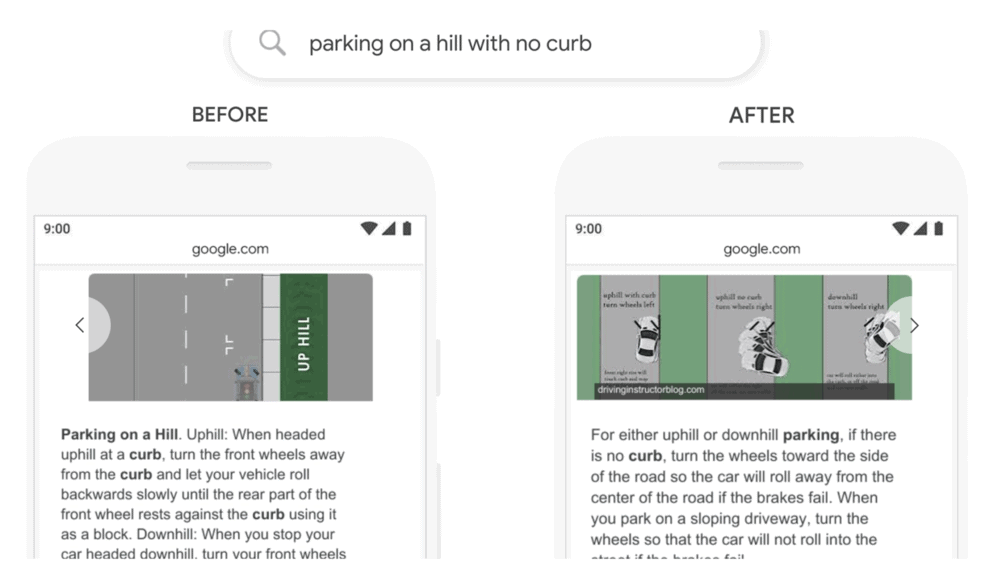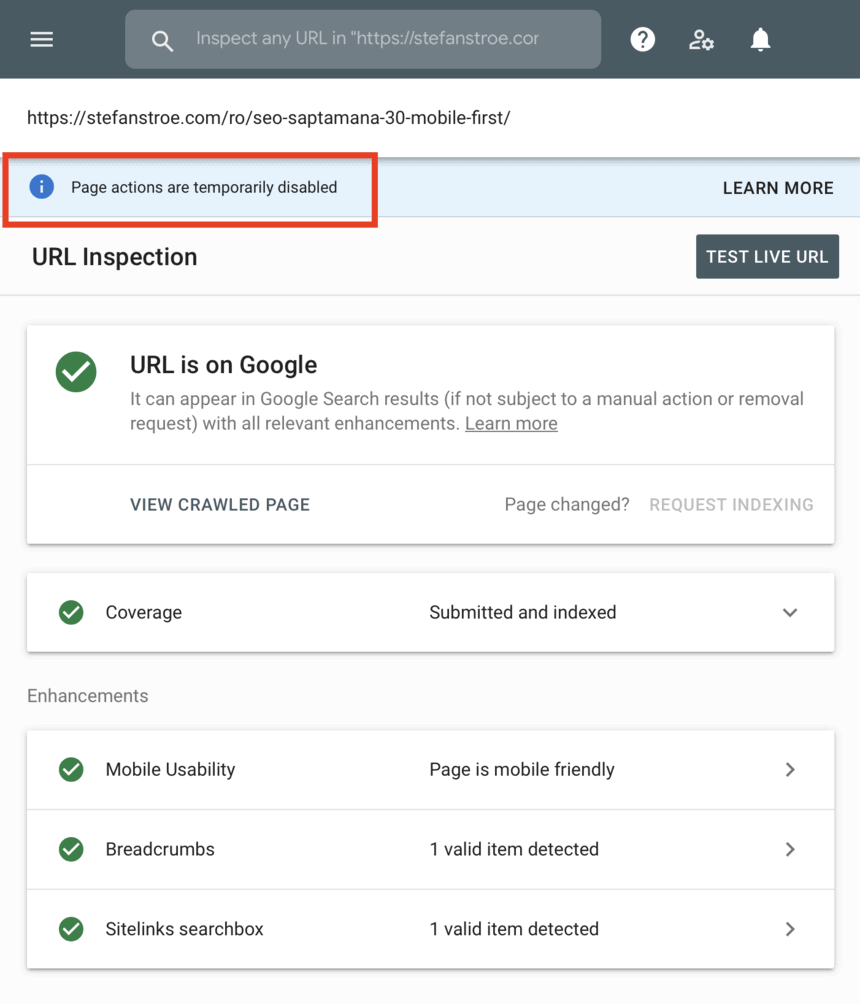Week 42 has been one of the most engaging in 2020, with important updates from Google regarding BERT, Google Search Console, and Google Analytics 4.
- Google Search BERT is covering almost 100% of searches
- Indexing feature disabled in Google Search Console
- Four new great features in Google Analytics 4
Google Search BERT is covering almost 100% of searches
Google announced that has almost finished implementing BERT in all English queries.

What is Google BERT?
BERT is a natural language processing AI tool that makes Google understand words better, taking into account their context.
Compared to the end of 2019, when BERT was covering 10% of searches, now the AI tool is almost at 100%.
A new spelling algorithm
Additionally to this deployment, Google shared that a new spelling algorithm will be introduced, minimizing English query errors and minimizing irrelevant search results.
How will BERT affect currently indexed pages?
In principle, because BERT is able to perform language contextualization, the web pages will be indexed based on parts (passages), not as a whole page, as it is done today.
Web page crawling will probably be performed the same as now, but indexing will differ significantly.
Due to mobile-first indexing, we should see changes in ranking for up to 7% of search queries especially on mobile browsers, and their SERPs may differ significantly vs. desktop SERPs.
From topics to subtopics
Superior contextualization of language also increases the possibility for Google to satisfy a broader but still relevant user search intent, which currently is performed by analyzing an entire page.
For Content Managers, planning keyphrases will be more important than ever, meaning that they will have to cover also subtopics.
Video Indexing
We’ve already seen on mobile video chapters – once fully deployed, BERT will be able to identify video parts automatically, creating an interactive structure of each video.
Read more about BERT on Google: https://blog.google/products/search/search-language-understanding-bert/
Request Indexing feature disabled in Google Search Console
Bad news for all those of you that like to submit manually pages to Google index via Google Search Console.
The Request Indexing feature is now disabled due to Google’s indexing structural changes, but probably also due to the officially admitted indexing bugs that happened during the past few weeks.

According to Google Webmasters:
Four new great features in Google Analytics 4
Google announced to all Analytics users a new version of its almighty performance measurement tool.
The four new features are supposed to make Analytics more intelligent and focused on ROI:
- Stronger integration with Google Ads
- This update lets the users create audiences that can improve ROI
- Now the system can measure interactions in web and apps altogether, YouTube conversions, revenue from paid channels (not only Google!)
- More user segmentation
- Analytics should now help us to find marketing insights based on the stage the customer is in his/her journey: traction channels in acquisition report, engagement, and retention reports, but also (very interesting!) post-converting activity.
- More data controllers
- Google Analytics 4 now allows users more granular control, especially in a very valuable area – customer data that can be used (or not!) to optimize Google Ads.
- Machine-learning algorithm to discover helpful data insights (e.g. cross-channel churn probability, but more to come)